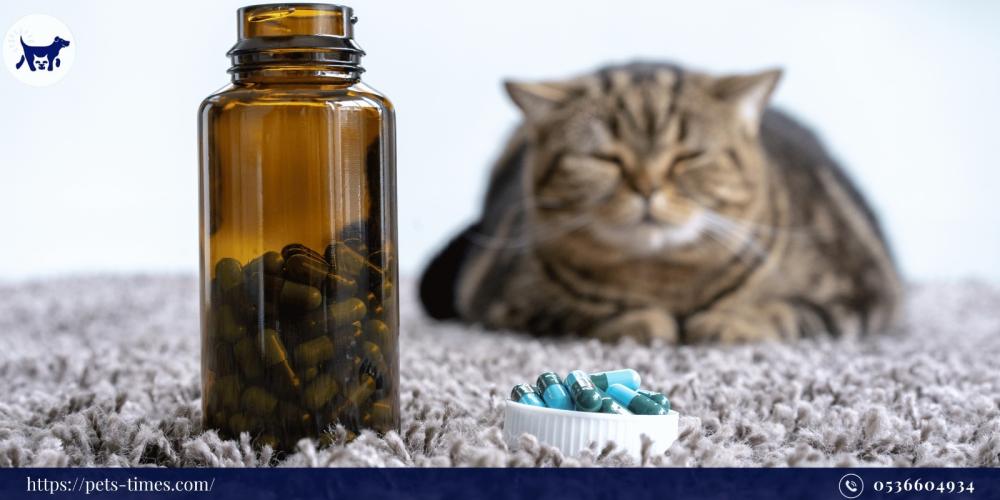Cats are susceptible to many diseases and health problems that affect their health and comfort. Cat diseases vary in nature, symptoms, and causative factors, including viral, bacterial, fungal, cancerous, and genetic diseases.
Watching our cats get sick is one of the hardest parts of pet ownership so knowing what they are going through and how you can help them stay comfortable and happy is one of the best ways to ensure they are cared for properly.
The most common diseases of cats:
Feline leukemia virus (FeLV):
It is common in households with more than one cat because it is spread through close contact with infected cats, such as sharing food and water bowls, mutual grooming between cats, or contact.
Symptoms:
- Fever.
- Vomiting and diarrhea.
- Lethargy and depression.
- Decreased appetite and weight loss.
- bloody, pale, or inflamed gums
Preventive measures:
- Annual vaccinations.
- Periodic checkups.
- Nutritional support, vitamins and hydration.
- Limit exposure to other cats, if possible.
- Make sure any new cats in the home are free of disease before bringing them home.
Pets Time store offers many products to take care of your pet's health, such as:
GimCat Multivitamin Immune Support Juice for Cats 50g
Canvit Multivitamin for Cats for Health Support 100g
Beaphar Multivitamin Juice for Cats 100g
Feline immunodeficiency virus (FIV):
Feline immunodeficiency virus is a slow-growing virus, and cats may not always show immediate symptoms, making it difficult to detect.
It is transmitted through saliva or body secretions.
Symptoms:
There are no signs at all, as some cats are positive for the virus and never show any signs of illness, but some cats show symptoms that must be taken into account, such as:
- sneezing
- Fever
- diarrhea
- Anemia
- Decreased appetite and weight loss.
- Poor fur condition, red skin and wounds.
- Swelling of lymph nodes or other organs.
Preventive measures:
- Annual vaccinations.
- Supports nutrition and hydration.
- Blood tests to monitor the progress of the virus.
- Provide a stress-free environment for your cat.
- Avoid contact with other cats.
- Clean food and water dishes regularly to prevent cross-contamination.
Upper respiratory tract infection:
It is caused by bacteria and viruses in the respiratory system, and affects cats of all ages.
Symptoms:
- loss of appetite
- cough or sneeze
- Nasal and eye discharge
- fever or lethargy
- Difficulty breathing
- Mouth ulcers
Preventive measures:
- Clean your cat's bedding regularly.
- Clean food and water dishes regularly.
- Avoid contact with cats that may be sick.
- Provide a clean environment free from dust and other irritants.
- If your cat shows signs of an upper respiratory infection, it is essential to take her to the veterinarian.
Diabetes:
It is a common condition that affects the body's ability to control the level of sugar in the bloodstream and can lead to serious complications if left untreated.
Symptoms:
- Vomiting
- Idleness
- diarrhea
- weight loss
- Increased urination and thirst
Preventive measures:
- Specialized blood tests.
- Pay attention to the type of food you give your cat.
- Make sure that the food and rewards provided are sugar-free.
- Regular visits to the veterinarian and necessary preventive medical tests every certain period.
Pets Time store offers many foods suitable for your pet, such as:
Josera Help Dry Cat Food for Diabetics and Obesity with Ginger
Hills Sensitive Dry Food for Cats with Food Allergies 1.5kg
Hill's Digestive Care Dry Cat Food for Digestive Care
Purinaon Hairball Dry Cat Food with Chicken for Hairball Control 1.2
Ringworm of the scalp:
It is a common infection caused by a group of fungi called dermatophytes.
Symptoms:
- Hair loss.
- Skin thickness.
- Red or silver spots on the fur or skin.
- Scratching leading to sores and scabies
Preventive measures:
- Use antifungal shampoo.
- Use ointments or creams to prevent fungi.
- Avoid contact with infected animals, bedding, or contaminated objects.
- It is important to practice good hygiene and clean your cat's environment regularly to prevent the spread of infection.
Pets Time store offers your pet the right products such as:
Espry Cat Shampoo Against Flea & Ticks 355ml
Andy Hope Oil Antiseptic & Anti-Itch Shampoo for Cats & Dogs 500ml
Andy Pet Shampoo for Cats and Dogs with Algae and Seaweed Mud
Wilda Siberica Sensitive Pet Shampoo 400ml
If you suspect your cat has any of the common cat diseases discussed in this article, contact your veterinarian for an evaluation. Vaccinations are also essential in preventing many of these cat diseases, so keep your pet's vaccinations up to date.

